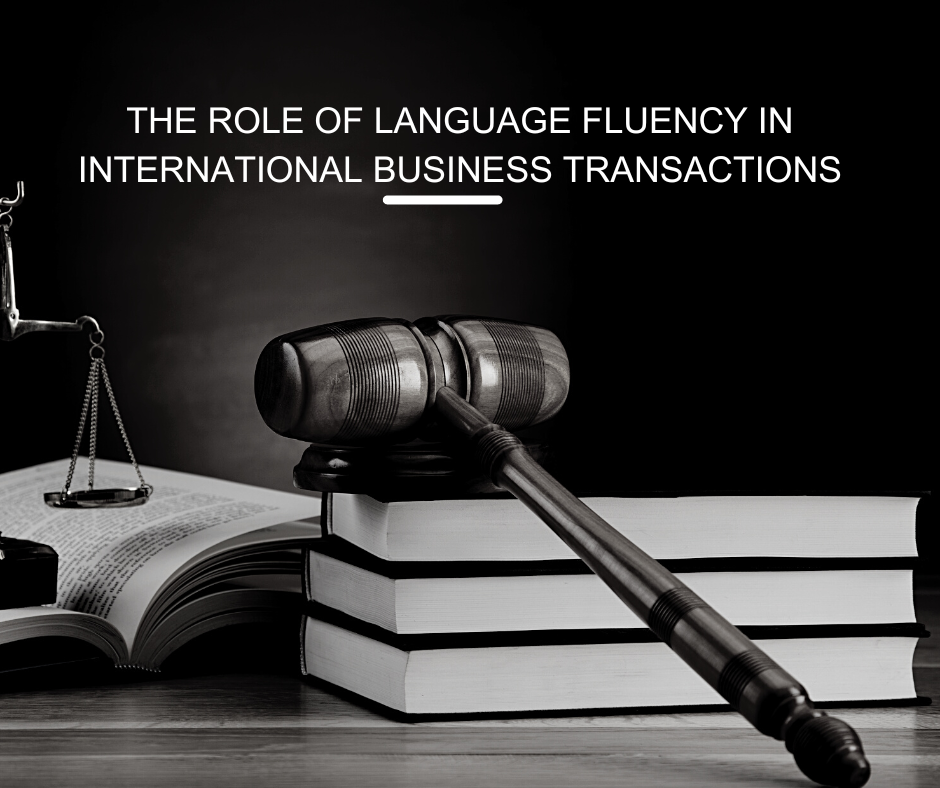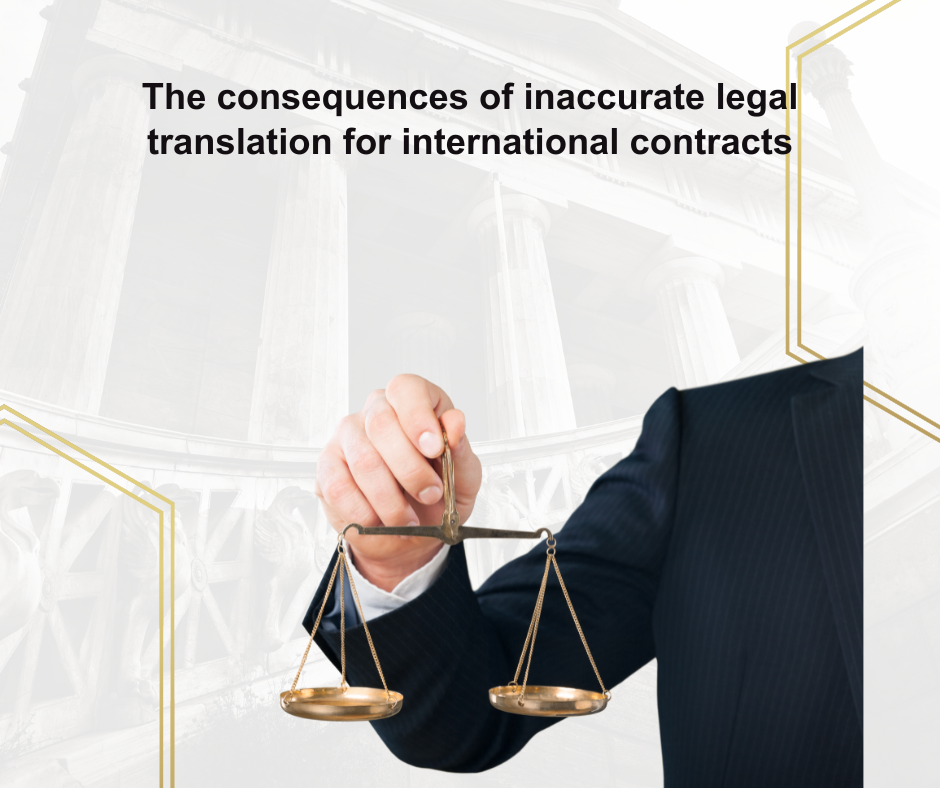Translation contract: International contract translations are essential to cross-cultural business transactions. From negotiating terms and conditions to ensuring legal compliance, accurately translating these contracts is complex and delicate. This blog will explore the challenges and effects of accurate and inaccurate translation and more!
Contents
- 1 What are international contracts?
- 2 The Role of language fluency in international business transactions
- 3 Key difficulties in legal translation for international contracts
- 4 The consequences of inaccurate legal translation for international Translation contract
- 5 Importance of confidentiality in international contract translation
- 6 Legal interpretation role in international contract
- 7 Trustworthy translation services for seamless international contracts
What are international contracts?
International contracts are agreements entered into between parties from different countries.
These contracts govern the rights, obligations, and responsibilities of the parties involved in international business transactions.
They can cover various activities, such as selling and purchasing goods, providing services, joint ventures, licensing agreements, etc.
International contracts typically address various vital elements, including:
- Parties: The contract identifies the individuals, companies, or organizations involved in the agreement.
- Subject matter: It defines the nature of the transaction, specifying the goods, services, or rights being exchanged.
- Terms and conditions: The contract outlines the terms and conditions of the agreement, including payment terms, delivery schedules, quality standards, intellectual property rights, dispute resolution mechanisms, and applicable laws.
- Governing law: International contracts specify the legal system under which the agreement will be interpreted and enforced.
- Language: The language in which the contract is drafted and interpreted is usually specified to avoid misunderstandings.
- Dispute resolution: International contracts may include provisions for resolving disputes, such as through negotiation, mediation, arbitration, or litigation.
- Force majeure: Contracts often contain provisions that address unforeseen circumstances, such as natural disasters, political instability, or other events beyond the parties’ control, which may excuse non-performance or allow for contract termination.
Also know: The ultimate guide to legal translation in Dubai: everything you need to know
The Role of language fluency in international business transactions
Language is vital in international business. It facilitates communication between parties from different countries and cultures. Here are key aspects of its role in transactions:
1-Negotiations
Clear and effective communication is vital for reaching mutually beneficial agreements, understanding terms and conditions, and resolving conflicts or misunderstandings.
2-Contracts and agreements
Language is very important for drafting contracts, agreements, and other legal documents in international business transactions.
It ensures that all parties understand the terms, conditions, rights, and obligations involved in the transaction.
3-Marketing and sales
Businesses must communicate their products or services effectively to international markets, often requiring translating marketing materials, advertisements, and websites into multiple languages.
Localization, adapting marketing messages to specific cultural contexts, is essential to resonate with target audiences.
4-Cross-cultural communication
Language skills enable individuals to understand and respect cultural nuances, norms, and customs, which can impact business relationships and negotiations.
Proficiency in the local language can help build rapport, establish trust, and demonstrate commitment to foreign business partners.
5-Customer service
Communicating with customers in their native language enhances their experience, facilitates problem-solving, and fosters long-term relationships.
Multilingual customer support teams or translation services are common strategies for addressing language barriers.
6-Legal and regulatory compliance
Language proficiency is essential for understanding and complying with countries’ legal and regulatory requirements.
Businesses must be able to comprehend local laws, regulations, tax codes, and documentation in the respective languages to avoid legal pitfalls or compliance issues.
Also know: A Look into Dubai’s thriving legal translation market
Key difficulties in legal translation for international contracts
Legal translation for international contracts poses several challenges due to the complex legal and linguistic aspects, including:
- Linguistic differences: Accurate translation of legal concepts across countries requires a deep understanding of legal systems and excellent linguistic skills in both languages.
- Cultural and contextual nuances: Translators must align legal translations with cultural expectations and understand the specific legal principles.
- Ambiguity and precision: Translating legal documents demands utmost accuracy to avoid confusion and disputes.
- Legal concepts and structures: Translators must know unique legal concepts and structures to ensure accurate translations.
- Technical terminology: Comprehensive knowledge of legal and industry-specific terms is essential.
- Legal equivalence: Achieving legal validity and enforceability in international Translation contracts requires linguistic accuracy and maintaining the original legal intent.
- Confidentiality and security: Translators must handle translated documents securely, protecting sensitive and confidential information.
The consequences of inaccurate legal translation for international Translation contract
Using inaccurate legal translation for international Translation contract can lead to various problems, including:
-
Misinterpretation of terms
Inaccurate translation can result in misunderstandings and misconceptions of contractual terms.
This can lead to disputes between the parties involved, as they may have different understandings of their rights, obligations, and responsibilities under the Translation contract.
-
Ambiguity and uncertainty
A poor translation can introduce ambiguity and uncertainty into the contract, making it difficult to determine the intended meaning of specific provisions.
This can create loopholes and gaps in the contract, potentially affecting its enforceability and undermining the parties’ legal rights.
-
Legal non-compliance
Inaccurate translation can result in non-compliance with local laws and regulations.
The Translation contract may fail to accurately reflect the jurisdiction’s legal requirements where it is intended to be enforced.
This can have legal consequences, render the contract unenforceable, or expose the parties to penalties and liabilities.
-
Costly disputes and litigation
When parties to an international contract have different interpretations of its terms due to inaccurate translation, it often leads to disputes and litigation.
Resolving these disputes can be time-consuming, expensive, and detrimental to business relationships.
Choosing professional legal translators with expertise in specific legal systems and languages is essential to mitigate these risks as they:
- Posse a deep understanding of legal terminology, concepts, and principles in both legal systems involved in the contract.
- Ensure the translated text accurately reflects the original document’s meaning, intent, and legal nuances.
- Understand that legal concepts and terminology may not have an exact equivalent in the target language, and adapt the translation to maintain legal accuracy while accounting for cultural context.
Also know: Countless benefits of professional legal translation services
Importance of confidentiality in international contract translation
Confidentiality is of paramount importance in international contracts during translation as:
- International contracts often contain sensitive information, like trade secrets and financial data. This necessitates implementing confidentiality measures in translation to protect this information from unauthorized access or disclosure.
- Confidentiality in contract translation helps maintain the competitive advantage of the parties involved. Leaking contract details could give competitors insights into business strategies or sensitive information, undermining their position.
Legal interpretation role in international contract
Legal interpreters are indispensable in bridging language barriers during international contract negotiations to facilitate effective communication between parties who speak different languages.
Depending on the context, they can employ different interpretation techniques, such as consecutive and simultaneous interpretation.
Here are some key points regarding the role of legal interpreters:
-
Language mediation
Legal interpreters serve as intermediaries between parties who speak different languages, ensuring accurate and reliable communication during contract negotiations.
They possess a high level of proficiency in both source and target languages and a deep understanding of legal terminology and concepts.
-
Confidentiality and neutrality
Legal interpreters maintain the confidentiality of the information exchanged during negotiations and remain impartial throughout the process, ensuring that all parties can trust them to handle sensitive information appropriately.
-
Technical and legal knowledge
Interpreters specializing in legal matters are well-versed in the technical and legal aspects of the negotiation.
They familiarise themselves with the subject matter, legal terminology, and relevant laws, enabling them to accurately convey complex legal concepts and ensure that all parties clearly understand the discussed terms.
Also know: Cross Borders: How legal translation services help business
Trustworthy translation services for seamless international contracts
At Arkan legal translation Dubai, we specialize in providing top-notch translation solutions tailored to meet the unique needs of our clients.
With our extensive expertise, linguistic proficiency, and unwavering commitment to quality, we ensure that your contracts are accurately and flawlessly translated, enabling smooth communication across languages and cultures.
Why choose Arkan?
- Our translators are culturally sensitive, adapting your contracts to be culturally appropriate and well-received by all parties involved.
- We prioritize confidentiality and security, treating your legal documents with strict protocols and secure systems.
- Timely delivery is guaranteed, allowing you to meet your contractual obligations promptly.
- Our quality assurance processes ensure accurate and excellent translations, leaving no room for misunderstandings or errors.
- We provide tailored solutions, customizing our translation services to meet your specific requirements for any legal document.
Trust our legal expertise, commitment to excellence, and dedication to client satisfaction. Contact us today to discuss your requirements and experience our language-bridging expertise for successful global business relationships.





